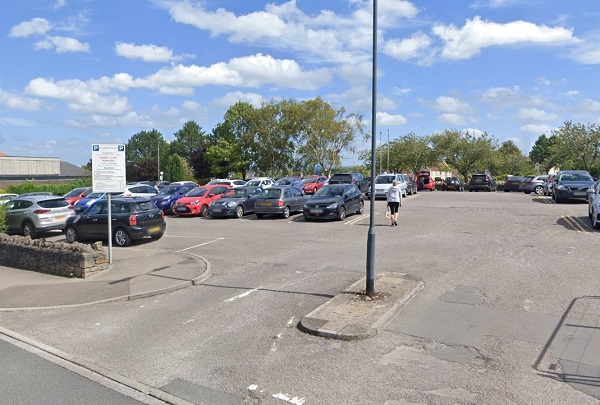SOUTH Gloucestershire Council has confirmed plans to bring in charges in its car parks and on-street parking spaces.
The measure is one of several included in the council’s budget for the coming year, which will also include an increase in its part of the council tax bill by the maximum amount allowed without a referendum – 4.99% – from April.
The council runs off-street car parks at five sites in Thornbury: Castle Court (long and short stay), Park Road, Rock Street (long and short stay), St Mary Street (pictured above) and Thornbury Leisure Centre, with a total of more than 880 spaces for cars, coaches and motorbikes.
Last year Thornbury Chamber of Commerce warned that shoppers would abandon the town if charges were introduced, after a survey of more than 2,000 people found 90% would shop elsewhere if they had to pay to park.
The council has not said how much the charges would be but says there would be “an element of free parking” – and new restrictions on nearby roads to discourage people from using them instead.
In a statement confirming the move, the authority said the amount it was receiving to fund services from central government left it with a “£2 million income generation target” which had been included in last year’s budget.
It said: “A scheme of car parking charges will need to be implemented, in line with most local authorities across the country.
“The details of this will be worked up over the coming weeks, with a phased implementation plan starting with council owned off-street car parks before progressing to on-street parking.
“A scheme will be developed that balances the need for the council to balance the books with the needs of residents and businesses to maintain access to shopping facilities and footfall in local shops, for example.
“The specifics of these charges, for example where they will apply and how much they will be, are yet to be determined, but in light of community concerns about the potential impact of this, which was widely expressed in the consultation process, the scheme will include an element of free parking and the introduction of business permits where appropriate.
“In order that these measures do not lead to drivers congesting local residential areas, there will also need to be new regulations to street parking in some areas to protect local residents, and a balance will be struck so that parking near to local shops is not blocked by all-day parking commuters.”
Other changes include a hike in green bin charges from £30 to £60 a year, and a £10 administration charge to apply for a Blue Badge.
The council says both changes will bring the council into line with neighbouring authorities.
It says the proposals followed “an extensive public consultation process” which saw 50,000 comments submitted on the authority’s original draft proposals.
The 4.99% council tax rise represents an extra £86.23 on the main council element of typical Band D householders’ bill, from £1,727.98 to £1,814.21.
Final council tax bills, which will be voted on in February, will also include the charges levied by parish councils, the police and fire service, and ‘special expenses’ for neighbourhood facilities.
The budget will include a £1 million increase in spending on children’s services, providing Free School Meal vouchers for one week at Easter and one week of summer holidays, a pilot scheme to help landlords make rental homes more energy efficient and continued support for food banks and community pantries.
A spokesperson said: “The council has chosen to prioritise support for those most in need of cost-of-living support because of current uncertainty over whether the Household Support Fund, which is worth £2.8m for South Gloucestershire, will be continued after March 2024.
“The Fund, and its previous iterations, has been used to provide a significant amount of the Council’s cost-of-living support to date.”
Councillors will begin the formal review of the budget at a scrutiny commission meeting on January 31, before it is considered by the cabinet on February 5 and voted on by the Full Council on February 21.


